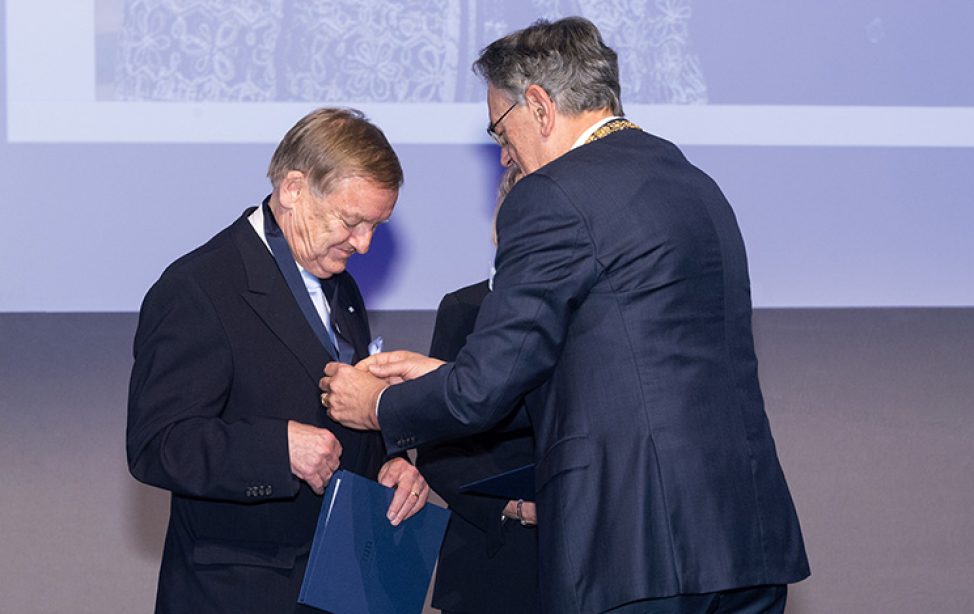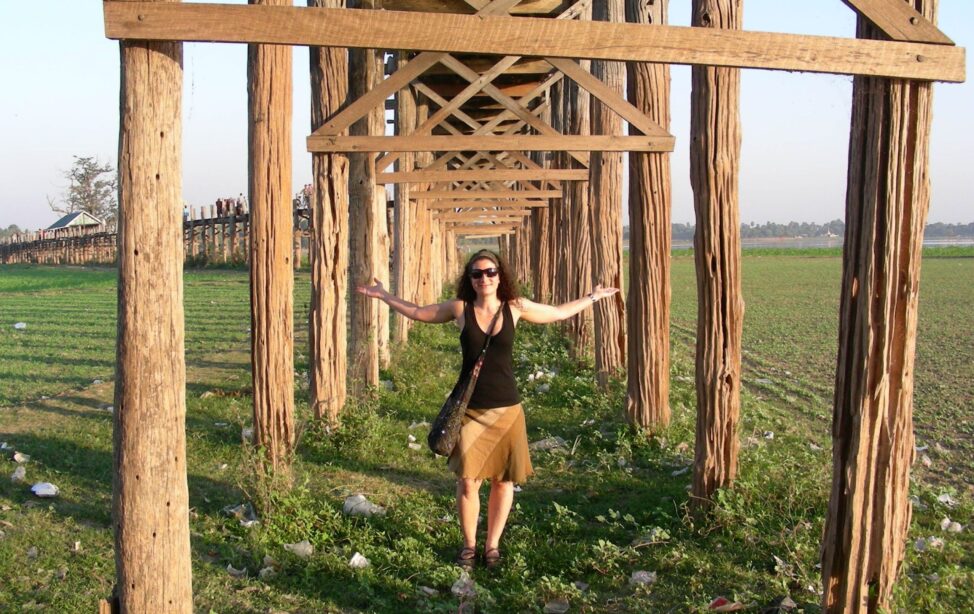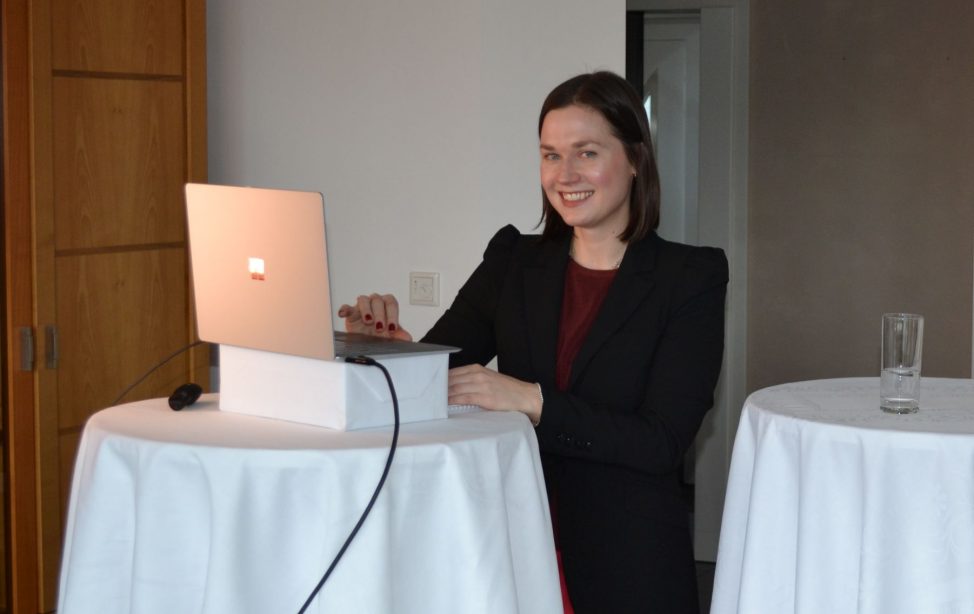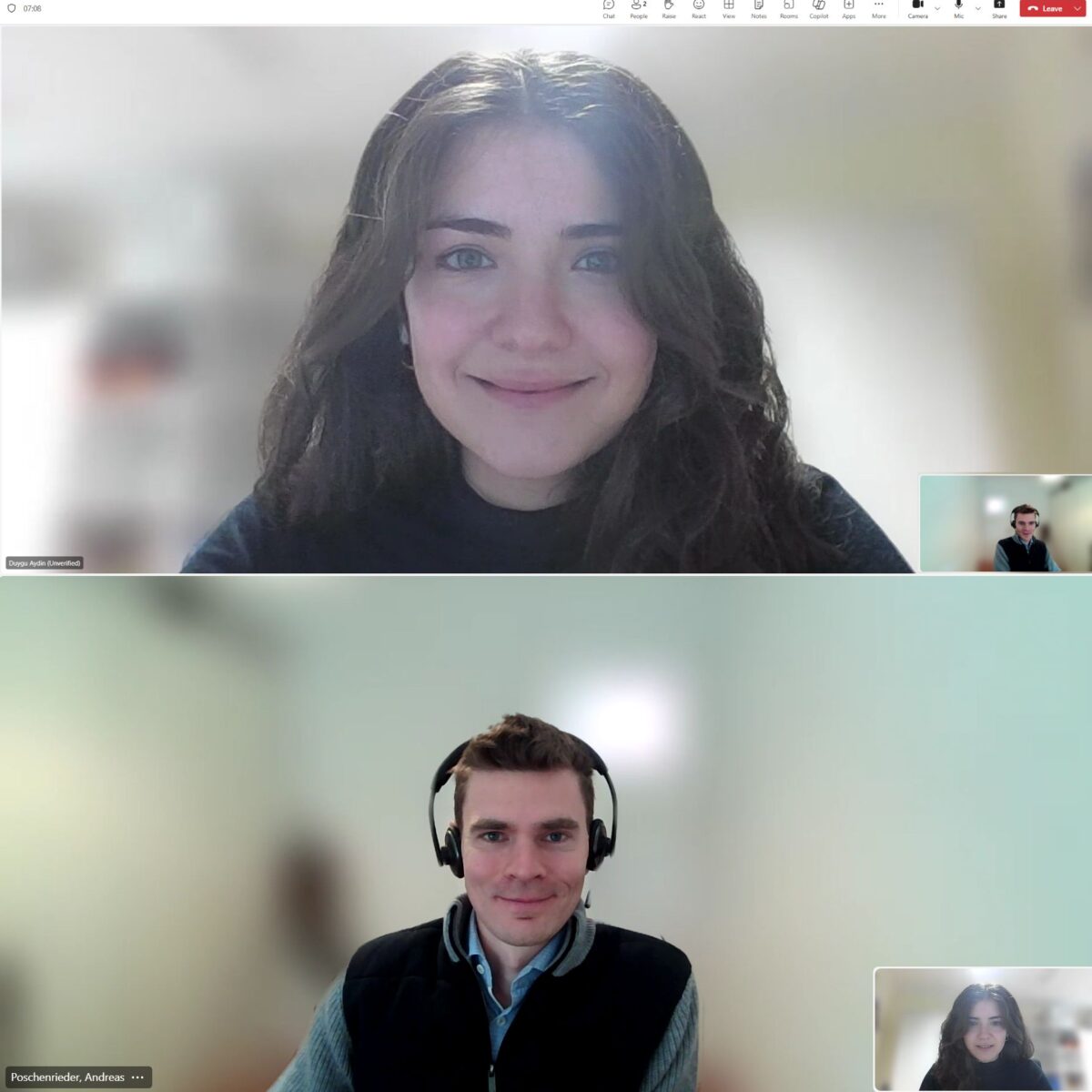
Mentoring via Zoom: Duygu Aydin and Andreas Poschenrieder at a mentoring session (Picture: private).
Andreas Poschenrieder decided to become a mentor back then because he enjoys meeting people and wanted to give something back to TUM. But also because he knows what it feels like when you are still starting your career. “You should always have a mentor,” says the TUM Alumnus. “Whether privately or at work. Someone who is interested in the other person and their development and can provide food for thought or advice in certain situations.”
Lots of questions? In the mentoring program you have time for answers
Duygu Aydin and Andreas Poschenrieder have been working together as a mentoring tandem for four years now. Initially, the two met weekly, but now they see each other about once a quarter, depending on the arrangement, always with questions on their minds. “Duygu makes it easy for me. She prepares specific questions and topics in advance to make it easier for her to make decisions in difficult phases,” says Andreas Poschenrieder. He sees himself as an independent source who can also dispel doubts. “We’re all in our bubble, so it’s not a bad thing to have a discussion partner who can look at the situation from the outside without emotion,” says mentor Andreas Poschenrieder.
Biochemistry, pharmacy, nuclear medicine: experience in all areas
When she has decisions to make, says Duygu Aydin, Andreas helps her to act purposefully. “It’s very helpful to have someone as a sounding board to discuss things with.” To this day, their discussions take place digitally, as Andreas Poschenrieder lives in Geneva, an hour’s flight from Munich. He works there for a company that develops radioligand therapies for cancer patients in the field of nuclear medicine. He brings experience from science and industry to the mentorship: Before his job at the pharmaceutical company, he completed a doctorate in pharmaceutical radiochemistry at TUM – a field that Duygu Aydin also finds exciting. In biochemistry, she says, you are more often interested in basic research, while nuclear medicine provides a relatively quick overview, from research to application in humans. “You have a direct effect on the patient, which I really like,” she says.
Andreas doesn’t tell me what to do, he helps me to make my own decisions.
Duygu Aydin is currently working on her doctoral thesis in the field of anesthesiology. “Towards the end of my doctorate, I will of course have another conversation with Andreas,” she says. Perhaps even in person, as this is still on the alumni’s joint to-do list. “When I’m back in Munich, I’ll think of you,” says Andreas Poschenrieder. “When I’m in Geneva, I’ll let you know,” replies Duygu Aydin.
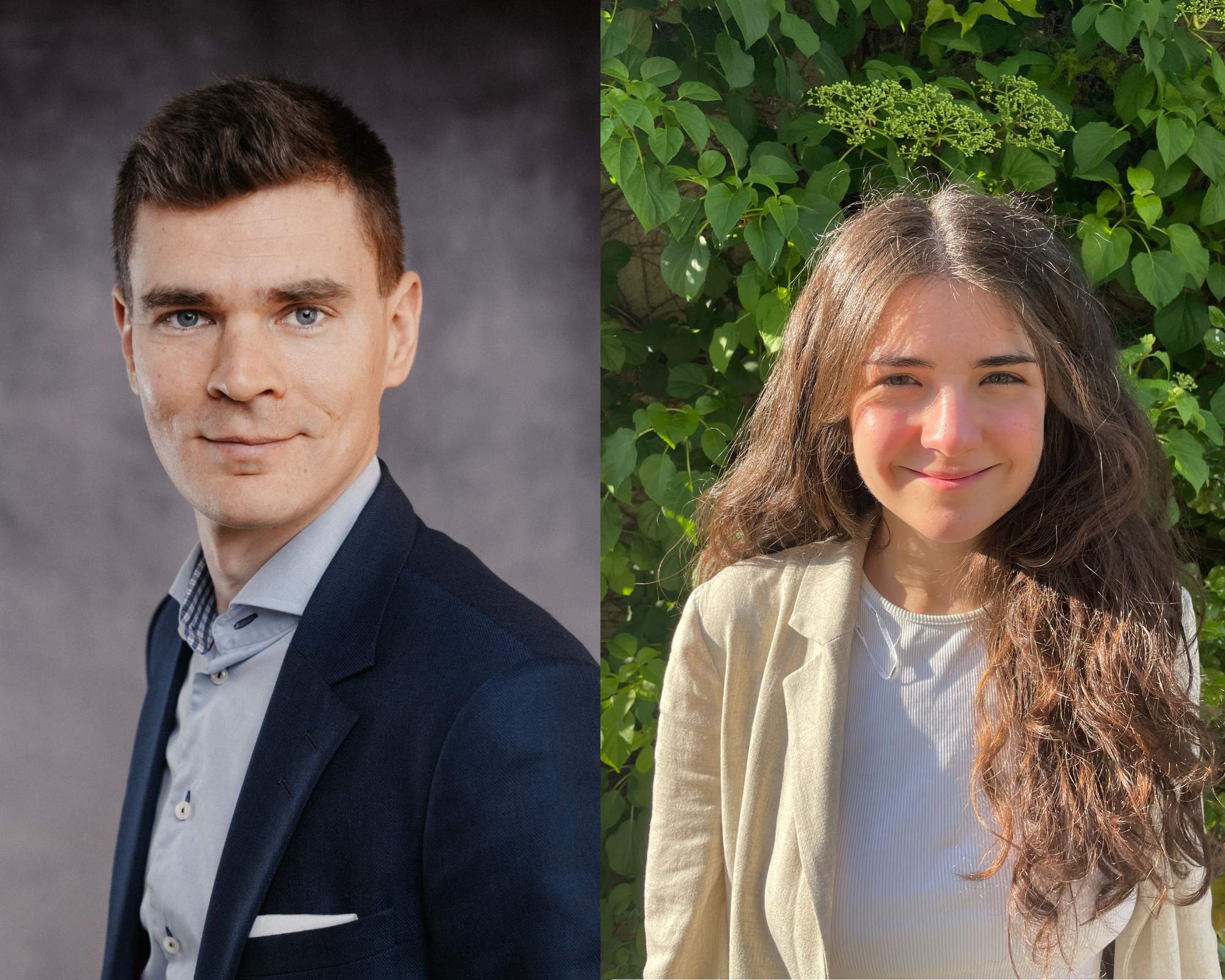
Picture: private
Doctorate in Pharmaceutical Radiochemistry 2017
Andreas Poschenrieder completed his doctorate at TUM at the Chair of Pharmaceutical Radiochemistry and conducted research into the development of diagnostic and therapeutic radiopharmaceuticals. After his doctorate, the TUM Alumnus worked at the Klinikum rechts der Isar in the quality control and production of radiopharmaceuticals as well as in clinical chemistry and pathobiochemistry. His path then led him to Nuremberg. There he started as a medical trainee at the pharmaceutical company Novartis. He is now Associate Director of Health Care System Readiness at Advanced Accelerator Applications, a Novartis company in Geneva, where he works to ensure that all cancer patients who can benefit from radioligand therapies can receive them in a timely manner.
Duygu Aydin
Bachelor Biochemistry 2020, Master 2023
Before Duygu Aydin moved to Munich for her TUM studies, she attended the Istanbul Erkek Lisesi school in Istanbul. She completed her Bachelor’s and Master’s degrees at TUM and is currently working on her doctorate at the Department of Anesthesiology and Intensive Care Medicine at Klinikum rechts der Isar. For her doctoral thesis, the TUM Alumna is investigating how certain anesthetic adjuvants affect the EEG (electroencephalogram) of patients.
